Billing Playbook for Portable Restroom Rental Businesses
Managing a porta potty business is more than just handling portable restrooms and coordinating with drivers. It’s about making sure the money flows right and the bills are squared away.
Ever wondered how the most profitable businesses in our line of work keep their cash flow steady and their bills in check? Well, we went ahead and asked hundreds of folks just like you about their billing secrets. And guess what? We found some golden practices that the best of the best PROs are using and they’re easier to implement than you might think.
Whether you’ve been in the portable sanitation world for years or are just getting started, there’s always something new to learn. With this playbook, we’ll guide you through the ins and outs of efficient and profitable billing, without all the jargon or complications.
Ready to give your business that edge it deserves? Let’s dive in!
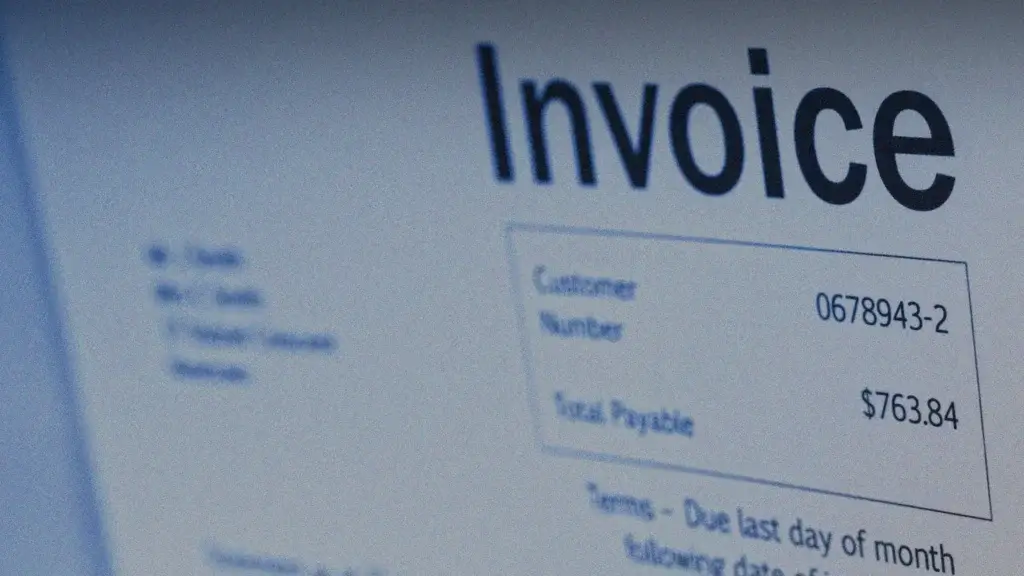
Section 1: The Power of the 28-Day Billing Cycle
Understanding the 28-Day Billing Cycle:
At its core, the 28-day billing cycle means invoicing your customers every four weeks, rather than at the end of every month. This approach offers a more consistent and even cycle, resulting in 13 billing periods a year instead of the usual 12.
Why 83% of PROs Use This Method:
- Predictability: A 28-day cycle gives businesses an even flow. Instead of juggling the odd 30 or 31 days of standard months, every cycle is consistent.
- Better Planning: With set periods, it’s easier to forecast revenues and manage resources. This simplicity is likely why a majority of profitable porta potty rental businesses have adopted this model.
- Increased Billing Opportunities: With 13 billing cycles instead of 12, you have an extra opportunity each year to generate revenue.
Advantages of 13 Billing Cycles a Year for Steady Cash Flow:
- Smoothened Cash Flow: More frequent and consistent billing means a more regular influx of cash, enabling you to cover operational expenses without hiccups.
- Reduced Monthly Variability: Instead of the highs and lows that come with monthly billing (thanks to the varying number of days in each month), you get a uniform approach that’s easier to manage and track.
- Optimized Operations: With more consistent billing cycles, it’s easier to align other business operations like route planning, maintenance, and customer outreach.
Strategies to Transition from Monthly to 28-Day Billing:
- Clear Communication: Before making the switch, inform your customers about the change, its benefits, and how it might impact them. For example, “I’m going to be servicing your toilets 4 times per billing period.”
- Transition Assistance: For those customers used to the monthly model, provide resources or assistance to help them adjust their payment schedules.
- Leverage Technology: Use software tools that can automate the transition, making it easier to implement and monitor.
Making a shift in your billing strategy can feel overwhelming. But with the advantages that the 28-day billing cycle offers, it’s a change that can position your portable restroom rental business for greater profitability and smoother operations.
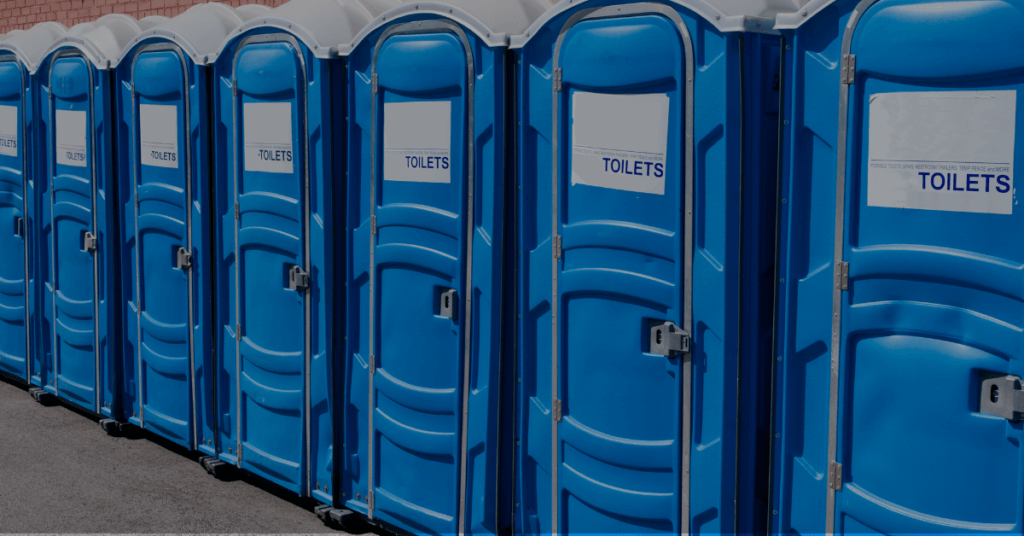
Section 2: Billing Upfront: A Proactive Approach
The Cash Flow Benefits of Billing Customers Upfront:
- Immediate Revenue: By billing upfront, you receive payment at the beginning of the service period, ensuring you have the funds to cover any related expenses immediately.
- Reduced Credit Risk: With advance payments, the risks associated with unpaid bills and bad debts are significantly minimized.
- Enhanced Cash Flow Management: A more predictable cash flow means you can invest back into your business, upgrade equipment, or address any unforeseen expenses without stressing about the funds.
Managing Customer Expectations and Emphasizing the Industry Norm:
- Open Dialogue: Educate your customers about the advantages of upfront billing, like ensuring continued service without interruptions.
- Industry Standard: Highlight that a majority of successful businesses in the portable sanitation industry are shifting to this model. It’s becoming the new norm for a reason.
- Value Proposition: Ensure customers understand that upfront billing enables you to provide even better service by maintaining equipment, training staff, and ensuring prompt service.
Tips for Smoothly Integrating Upfront Billing into Your Operations:
- Automate the Process: Use software tools to automatically generate and send out invoices at the start of each billing cycle.
- Flexible Payment Options: Offering multiple payment methods, like credit card payments, online transfers, or even direct debits, can make it easier for customers to adapt to the change.
- Clear Communication: Transparency is vital. Clearly mention on the invoice the service period the upfront payment covers and leverage your sales team. They should make it a part of every sales conversation.
- Feedback Loop: Encourage customers to share their feedback about the new billing model. It can provide insights into further improving the process.
Switching to upfront billing can seem like a significant change, but the benefits it brings in terms of financial stability and improved operations are well worth the effort. By effectively managing customer expectations and using the right tools, you can seamlessly integrate this proactive approach into your porta potty rental business.
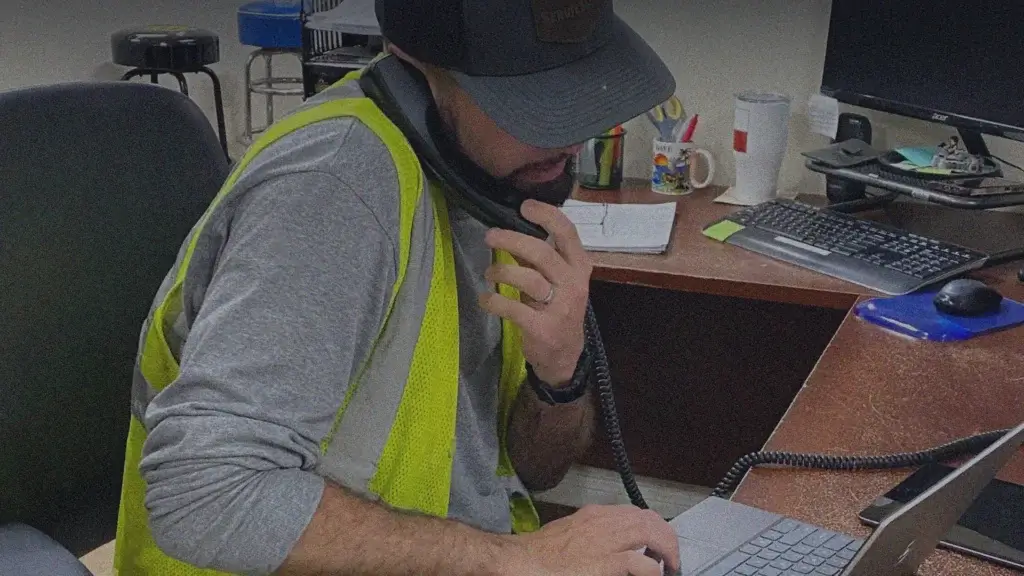
Section 3: Embracing Daily Billing for Accelerated Cash Flow
A Missed Opportunity:
With only 45% of portable restroom rental businesses currently billing their customers daily, there’s a vast window for many in the industry to take advantage of this practice. Why?
- Accelerated Cash Flow: Imagine the boost in cash flow if you’re invoicing every day and not just once a month. This results in a more consistent and predictable flow of funds into your business.
- Reduced Burden at Month-End: Distributing the invoicing process across every day of the month reduces the massive influx of billing tasks that traditionally come at month-end.
If you’re using pen and paper or spreadsheets, billing customers daily will be nearly impossible. But, if you have software like ServiceCore, this can be done each morning over a cup of coffee.
Advantages and Practicalities of Daily Invoicing:
- Quick Issue Resolution: Any discrepancies or issues with a particular invoice can be quickly addressed, as you’re dealing with fewer at a time.
- Enhanced Customer Service: Daily billing can make it easier to handle specific customer requests or modifications in real-time, offering a more personalized service.
- Efficient Cash Management: With a more regular influx of funds, you can strategically manage and allocate resources for daily operations, upgrades, or unexpected expenses.
Leveraging Software Tools Like ServiceCore:
- Automate and Simplify: Instead of manually generating invoices each day, tools like ServiceCore can automate the process, sending out daily invoices with little to no manual intervention.
- Error Minimization: Automated systems reduce the risk of errors, which can be more frequent when billing is a daily task.
- Streamlined Record-Keeping: Keep track of every transaction with ease, maintain a clear financial record, and ensure no invoice slips through the cracks.
Tapping into the potential of daily billing can significantly enhance the financial robustness of your portable restroom rental business. With the right strategies and tools in place, you can seamlessly incorporate this approach and enjoy the manifold benefits it brings.
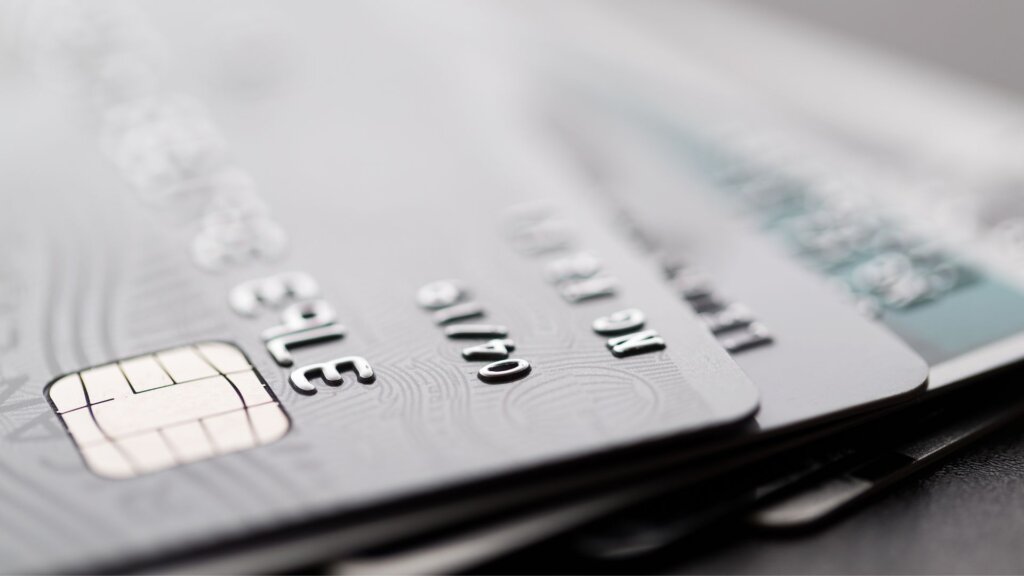
Section 4: Requiring Credit Cards
A Gap in the Industry:
With just 28% of portable sanitation businesses currently requiring a credit card on file, the majority of businesses in the sector are potentially leaving money on the table. By having a credit card on file, you’re significantly reducing the time taken from service delivery to payment. While you can’t do this with all of your customers like construction companies or home builders, the point is to try and get as many of your customers as possible to put a credit card on file.
Diving Into AR Reduction with Mandatory Credit Card On File:
- Automated Payments: By processing payments automatically, you reduce the risk of late or forgotten payments, trimming down your accounts receivable.
- Cash Flow Boost: A swift payment cycle means consistent cash flow, ensuring smooth operations and quicker reinvestment potential.
- Mitigate Default Risks: The chances of payment defaults or long-pending dues significantly drop, securing your business’s financial stability.
Addressing Customer Concerns and Ensuring Data Security:
- Transparency is Key: Clearly communicate to customers the reasons for this requirement – it’s about ensuring seamless service delivery and mutual respect for services rendered and payments due.
- Promote Security Protocols: Reassure customers that their credit card details are safe. Use secure software tools, like ServiceCore and Quickbooks, that prioritize data protection.
By capitalizing on the strategy of requiring credit cards on file, portable sanitation businesses can streamline their payment processes, thereby reducing AR and fostering a culture of prompt payments. It’s a simple step, but one that promises substantial positive changes for the business’s financial health.
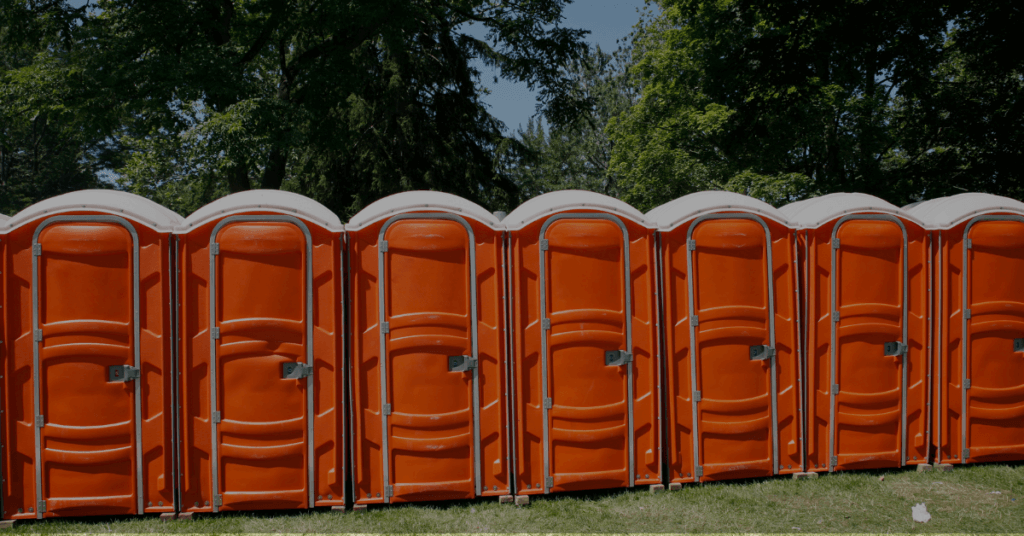
Section 5: Overcoming Accounts Receivable Challenges
Setting the Benchmark: The 60-Day Gold Standard
Why 60 Days? Keeping Accounts Receivable (AR) under 60 days is an industry best practice. This ensures you have the necessary cash flow to maintain smooth operations and avoid potential financial hiccups. A prolonged AR cycle can tie up capital that could be better used for growing your business, purchasing new equipment, or expanding into new areas.
Tactics to Reduce AR:
- Require a credit card on file: Again, you won’t be able to do this for all of your customers, but the point is to get as many of your customers as possible paying by the credit card they have on file. Instead of waiting for their payment, their card is billed immediately, and you improve cash flow.
- Clear Communication: Send reminders as payment due dates approach. A simple email or text reminder can nudge a customer to process a payment they might have otherwise forgotten.
- Manage Late Payments: Institute a clear, consistent policy for managing late payments. This could involve late fees or other penalties, but it’s essential to enforce the policy uniformly.
By actively addressing AR challenges, portable restroom rental businesses can ensure a more robust financial foundation. Remember, in this industry, every day counts. The faster you can convert your services into cash in the bank, the better positioned you are for success.
Section 6: Don’t Leave Money on the Table
To ensure you’re compensated fairly and not leaving money on the table, it’s crucial to recognize when to charge extra. This is all about ensuring that every bit of hard work, every additional resource, and every special scenario is adequately compensated. When you respect the value of your services, your customers will too. Let’s delve into the unique situations that warrant additional charges and how to approach them:
Weekend and After-Hours Services:
- Weekends and after-hours often require staff to work beyond their regular shifts. It’s common practice to charge extra for this due to the increased labor costs and the added inconvenience.
- Always ensure customers are aware of these additional charges when they request services outside regular business hours.
Emergency Requests:
- Emergencies, by their very nature, demand swift action. The urgency and immediate deployment of resources justify an additional fee.
- Differentiate between standard requests and genuine emergencies, and have a defined pricing strategy for each.
Multi-Person Jobs:
- Some tasks demand more than one professional. When more hands are needed on deck, it’s only fair to bill for the extra manpower.
- The invoice should clearly detail the number of personnel involved and the rate for each.
Attendant on Site:
- An attendant ensures the smooth functioning of facilities during events or in high-traffic scenarios. Their on-site presence and immediate assistance come at a premium.
- The customer should be made aware of the costs associated with having an on-site attendant beforehand.
Difficult Handling:
- Some jobs might have challenging terrains, accessibility issues, or other complexities that demand extra effort.
- Describe what qualifies as “difficult handling” in your service agreement, ensuring customers understand when and why they might incur this charge.
Out of Service Area Requests:
- Serving areas outside your regular radius means additional fuel and time costs. It’s reasonable to bill extra for these extended service requests.
- Clearly delineate your standard service area, so customers know when they’re requesting out-of-zone services.
Proration and Early Pickups:
- In cases where a unit is picked up early, businesses should consider prorating charges to reflect the shortened service duration.
- Decide on a threshold: For instance, if the unit is picked up more than a week before the end of a monthly billing cycle, consider providing a prorated refund, credit, or discount for the remaining days.
- Ensure transparency in your billing by clearly communicating proration policies upfront and detailing any prorated amounts on the invoice.
- Consider offering options like partial refunds, account credits, or discounts for future services. Discuss with the customer and determine which option aligns best with their preferences and your business practices.
With the above guidelines, portable sanitation businesses can ensure they’re adequately compensated for the specialized services they provide. Always emphasize transparency and clear communication to maintain trust and understanding with your customers.
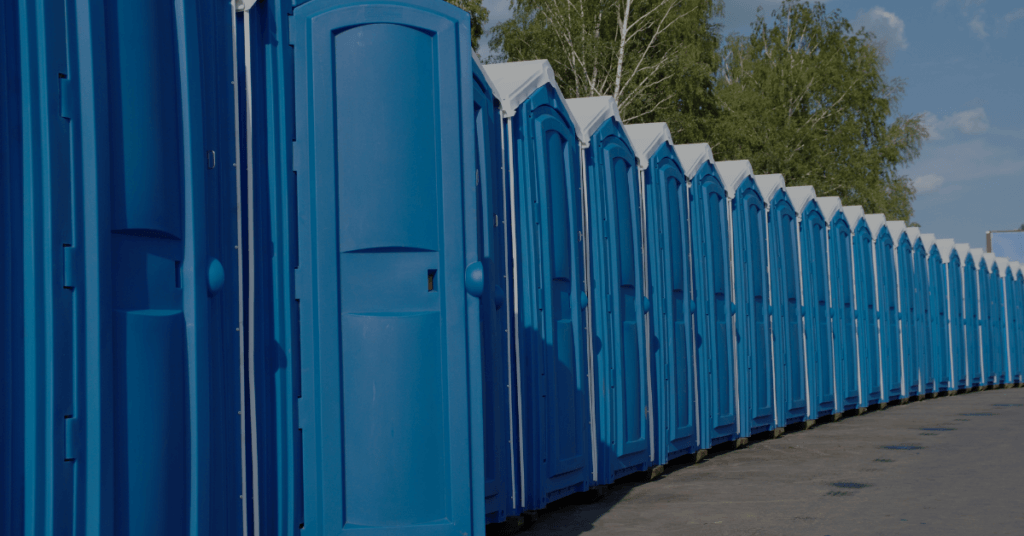
Billing Playbook Summary
Managing a portable restroom rental business encompasses a vast array of responsibilities, and at the forefront of ensuring sustainable operations is an efficient billing system. Our detailed Billing Playbook has illuminated several gold-standard practices, and here’s a recap of the significant takeaways:
- Adopt a 28-Day Billing Cycle: With 13 billing periods instead of 12, businesses can ensure more consistent cash flow, aligning closely with operational requirements.
- Bill Upfront for Financial Stability: Billing customers at the service’s commencement can provide an immediate revenue influx, reduce credit risks, and enhance overall cash flow management.
- Capitalize on Daily Billing: Only 45% of PROs are harnessing this strategy. By billing customers daily, especially with software tools like ServiceCore, you ensure an accelerated and consistent cash inflow.
- Require Credit Cards On File: This practice, adopted by just 28% of businesses, can significantly reduce AR, ensuring a culture of prompt payments and safeguarding financial health.
- Manage Accounts Receivable: Adhering to the 60-day benchmark for AR ensures sufficient cash flow, empowering businesses to reinvest and grow effectively.
- Don’t Miss Out on Extra Charges: Charging extra for services rendered during weekends, emergencies, and other unique scenarios ensures that businesses are fairly compensated for their efforts.
Optimizing billing practices isn’t merely about increased profitability but also about ensuring smooth operations, maintaining customer trust, and setting industry standards.
Ready to make these billing strategies a seamless part of your operation? ServiceCore integrates effortlessly into your business model, making it easy to implement the best practices discussed in this playbook. From automating daily invoices to handling special billing scenarios, ServiceCore provides the tools and flexibility you need to thrive.
FAQS
What is a 28-day billing cycle in the portable restroom rental industry?
The 28-day billing cycle refers to invoicing your customers every four weeks rather than at the month’s end. It offers consistency, allowing for 13 billing periods in a year instead of the usual 12.
Why do many portable restroom rental businesses prefer the 28-day billing cycle over monthly billing?
Adopting a 28-day cycle provides predictability, better planning due to consistent periods, and an additional billing opportunity each year.
How does the 28-day billing cycle improve cash flow?
With more frequent and consistent billing periods, businesses can expect a more regular influx of cash, enabling smoother operations and reduced monthly variability.
What are the steps to transition from monthly to 28-day billing?
Key steps include clear communication with customers, offering transition assistance, and leveraging technology like billing software to automate the shift.
How can ServiceCore help in implementing a 28-day billing cycle?
ServiceCore’s software can automate invoicing based on a 28-day cycle, providing reminders, tracking, and easy adjustments to cater to this billing model.
How does ServiceCore help in streamlining accounts receivable?
ServiceCore offers features like automatic invoicing, payment reminders, and real-time reporting to ensure businesses can efficiently manage and monitor their accounts receivable.
What are the best practices for managing accounts receivable?
Timely invoicing, maintaining clear communication with customers, offering multiple payment options, and routinely auditing accounts for discrepancies.
How can businesses ensure transparency when adding extra charges?
Businesses are advised to communicate the potential for extra charges from the outset, provide detailed breakdowns on invoices, and be available for any customer inquiries regarding additional fees.
Does ServiceCore’s software help in itemizing and tracking extra charges?
Yes, ServiceCore allows businesses to itemize additional costs, track them efficiently, and integrate them seamlessly into customer invoices.
What types of extra charges are commonly incurred in the portable restroom rental industry?
Common extra charges can include fees for extended rental periods, additional cleaning or maintenance, damages, or any special equipment or service requests.
How can businesses avoid disputes related to extra charges with their customers?
Clear communication, detailed documentation, and ensuring that customers are made aware of all potential charges from the beginning can significantly reduce disputes.
What should businesses do if a customer disputes an extra charge?
Keep detailed records, and remind the customer that you provided them with the terms of your agreement prior to rental/service. Discuss the charge with the customer, and if necessary, offer compromises or payment plans to maintain positive customer relations.


